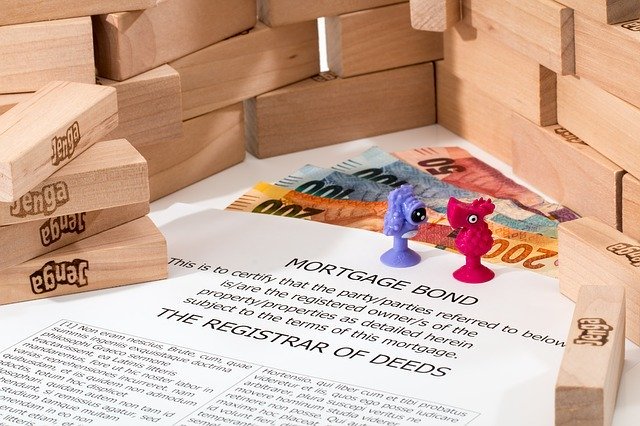Have you been a home mortgage before? If this is the case, you understand how tense it can be. Continue on to get you up to date on the mortgage that meets your needs.
Start preparing for your home loan application. Get your finances in hand. This includes saving money for a down payment and organizing your debts. You will not get a loan if you wait.
Get pre-approval to estimate your mortgage costs. Look around so you know what your price range is. Your lender can help you calculate estimated monthly payments.
Get pre-approved for a mortgage to find out what your payments will be.Shop around and find out what you’re eligible for so you can determine your price range. Once you find out this information, it will be easy to figure out your monthly payment.
Don’t be tempted to borrow the most expensive house you qualify. Consider your life and the amount of money you are able to afford.
Don’t take out the maximum amount of money possible. Lenders give you an approval amount, but they do not always have all the information about what you need to be comfortable. Consider your lifestyle, the way your money is spent and the amount you can reasonably afford.
Pay down the debt that you already have and don’t get new debt when you start working with a mortgage. High consumer debt could actually cause your application to be denied. Carrying some debt is going to cost you a lot of money by increasing your mortgage rate will be increased.
You must have a lengthy work history that shows how long you’ve been working if you wish to get a home mortgage. A lot of lenders need at least 2 steady years of solid work history in order to approve a mortgage loan. Switching jobs often can cause your application to get denied. You should never want to quit your job during the loan application process.
In advance of making your loan application, review your personal credit reports to check for accuracy. Recent years have made it more difficult to get a mortgage, so a solid credit report is critical if you wish to qualify for a loan with good terms.
Make sure your credit history is in good order before applying for a mortgage. Lenders consider how much risk they are taking on you based on your credit rating. If you’ve got bad credit, do everything possible to fix it to give your loan the best chance to be approved.
Make extra payments if you can with a 30 year term mortgage.The additional amount will be put toward the principal amount.
Regardless of your financial woes, communicate with your lender. Even though it might seem that all is lost and you can’t afford to make the mortgage payments, lenders are sometimes willing to renegotiate the terms of a loan to help you get through troubled times. Be sure to discuss all your options with your mortgage holder.
Do not let a single mortgage denial prevent you from getting a home mortgage. One lender’s denial does not represent them all. Keep shopping around until you have exhausted all of your options. You might find a co-signer can help you get the mortgage.
The interest rate will have an impact on how much you will end up spending on your mortgage payments. Know what you’ll be spending and how they will change your monthly payment.You could pay more than you can afford if you don’t pay attention.
Do not go on a spending spree to celebrate the closing. Lenders recheck credit before a mortgage close, and they could change their mind if they see a lot of activity. Wait to buy your new furniture or other items until after you have signed your mortgage contract.
Figure out what kind of mortgage type you need. There are different sorts of home loans. Knowing all about these different loan types can help you make the best decision for you. Speak to your lender about the different types of mortgage programs that are available to you.
Research prospective lenders before signing your bottom line. Don’t just trust in what they say to you. Look them up on the Internet.Check out lenders at the BBB as well. You should have to know as much as possible before you can be prepared to secure favorable loan terms.

Most mortgages require a down payment. Some lenders used to approve loans without a payment up front, but that is extremely rare today. Find out information on the down payment requirements in advance of submitting any loan application.
Learn how to detect and avoid shady home mortgage lender. Avoid the lenders that try to fast or smooth talk their way into a deal. Don’t sign things if you think the rates are too high. Avoid lenders that say there is no problem if you have bad credit. Don’t go with lenders who says lying is okay either.
Credit Cards
Before starting the loan process, get all your documents together. There is basic financial paperwork that is required by most lenders. They range from bank statements to pay stubs. If you have the documents in hand, you won’t have to return later with them.
Cut down on your credit cards before you get a home. Having lots of open credit cards can make it seem to people that you’re not able to handle you look financially irresponsible.
If you are able to personally afford a little bit higher monthly payment towards your mortgage, think about a 15 or 20 year loan. These loans have lower rate of interest and monthly payments that are slightly higher in exchange for the shorter loan period. You are able to save thousands of dollars over a regular 30-year loan in the end.
Check into some government programs for individuals in your situation if you’re a new homebuyer. You can find programs through the government that will help lower closing costs, and lenders who may work with people who have credit issues.
Look to the internet for your mortgage. You no longer have to physically go to a physical location to get a loan. There are many reputable lenders who have started to do their business on the Internet. They allow you to work with someone who can process home loans faster because they are decentralized.
Speak with a broker for information about things you do not understand. It is essential that you always understand what goes on. Be certain your loan broker with all current contact information. Look at your e-mail often just in case they need certain documents or new information.
Find out the property taxes before making an offer on a home. You want to understand about how much you’ll pay in property taxes for the place you’ll buy. The tax assessor may consider your property to be more valuable than you expect, leading to an unpleasant surprise at tax time.
Don’t allow yourself to make any changes that may negatively affect your credit score until the loan closing. The lender may check your score right before closing. They may rescind their offer if you’re trying to make new car payment or get a credit card that’s new.
Be careful about signing any loan with pre-payment penalties. If your credit history is good, you should never agree to this type of loan. Having the option of pre-paying is a great way to save money on interest. Don’t just give up so quickly.
Ask your friends if they have any tips regarding mortgages. Chances are, they can give you some helpful advice. If they’ve experienced a problem, they may be able to help you avoid the problem. Talking to more people ensures that you will get more information.
Try to save as much cash as possible prior to applying for the mortgage. You will need to have to pay at least three percent down. You must pay the private mortgage insurance if there are down payments of less than 20%.
Understanding how to get favorable mortgage terms is crucial. There is no need to have a hard time making your payments or risk losing your home. Rather, you have to have a mortgage which fits into a budget you can afford, and you need a company that will take good care of you.
When a mortgage broker looks at your account, it is better to have a few low balances on multiple credit accounts instead of carrying a single large balance. Try to keep balances down below half of the credit limit. If you’re able to, balances that are lower than 30 percent of the credit you have available work the best.





